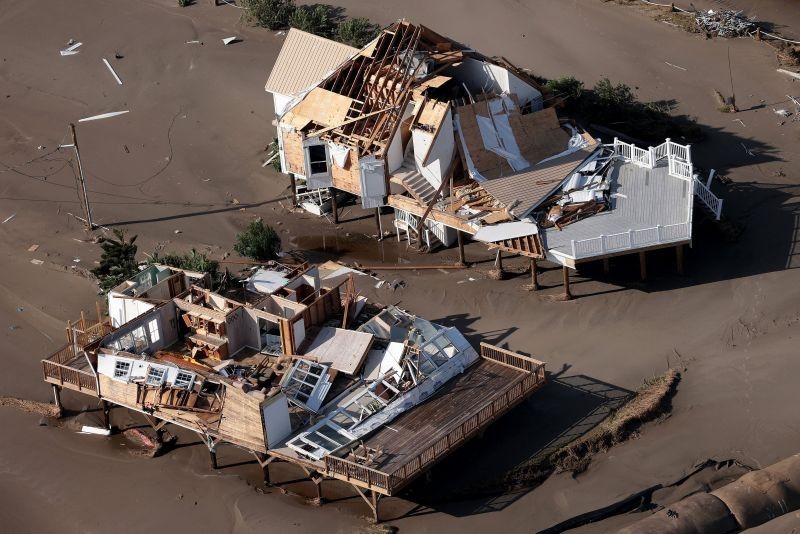Weather, climate disasters surge fivefold in 50 years — UN

GENEVA, Switzerland — The United Nations warned Wednesday that weather-related disasters have skyrocketed over the past half-century, causing far more damage even as better warning systems have meant fewer deaths.
A report from the UN's World Meteorological Organization (WMO) examined mortality and economic losses from weather, climate and water extremes between 1970 and 2019.
It found that such disasters have increased fivefold during that period, driven largely by a warming planet, and warned the upward trend would continue.
"The number of weather, climate and water extremes are increasing and will become more frequent and severe in many parts of the world as a result of climate change," WMO Secretary-General Petteri Taalas said in a statement.
In total, there were more than 11,000 of disasters attributed to these hazards globally since 1970, causing more than two million deaths and some $3.64 trillion in losses.
115 deaths each day
On average, a disaster linked to weather, climate and water extremes has thus occurred every single day over the past 50 years, killing 115 people and causing $202 million in daily losses, WMO found.
More than 91% of the deaths occurred in developing countries, it said.
Droughts were responsible for the largest losses of human life during the period, alone accounting for some 650,000 deaths, while storms have left over 577,000 people dead.
Floods have meanwhile killed nearly 59,000 over the past 50 years and extreme temperatures have killed close to 56,000, the report found.
On a positive note, the report found that even as the number of weather and climate-related disasters ballooned over the past half-century, the number of associated deaths declined nearly threefold.
The toll fell from over 50,000 deaths each year in the 1970s to fewer than 20,000 in the 2010s, WMO said.
And while the 1970s and 1980 reported an average of 170 related deaths per day, the daily average in the 1990s fell to 90, and then to 40 in the 2010s.
Taalas said dramatic improvements in early warning systems were largely to thank for the drop in deaths.
"Quite simply, we are better than ever before at saving lives," he said.
More people exposed
WMO stressed though that much remains to be done, with only half of the agency's 193 member states currently housing the life-saving multi-hazard early warning systems.
It also cautioned that severe gaps remained in weather and hydrological observing networks in Africa and parts of Latin America and in Pacific and Caribbean island states.
Mami Mizutori, who heads the UN office for disaster risk reduction, also hailed the life-saving impact of the improved early warning systems.
But she warned in the statement that "the number of people exposed to disaster risk is increasing due to population growth in hazard-exposed areas and the growing intensity and frequency of weather events."
And while early warning systems save lives, they have done little to shield disaster-prone areas from swelling economic damage.
In fact, the reported losses from 2010 to 2019 stood at $383 million per day—seven times more than the some $49 million in average daily losses in the 1970s.
Seven of the costliest 10 disasters in the past 50 years have happened since 2005, with three of them in 2017 alone: Hurricane Harvey, which caused nearly $97 billion in damages, followed by Maria at close to $70 billion and Irma at almost $60 billion.
- Latest






























